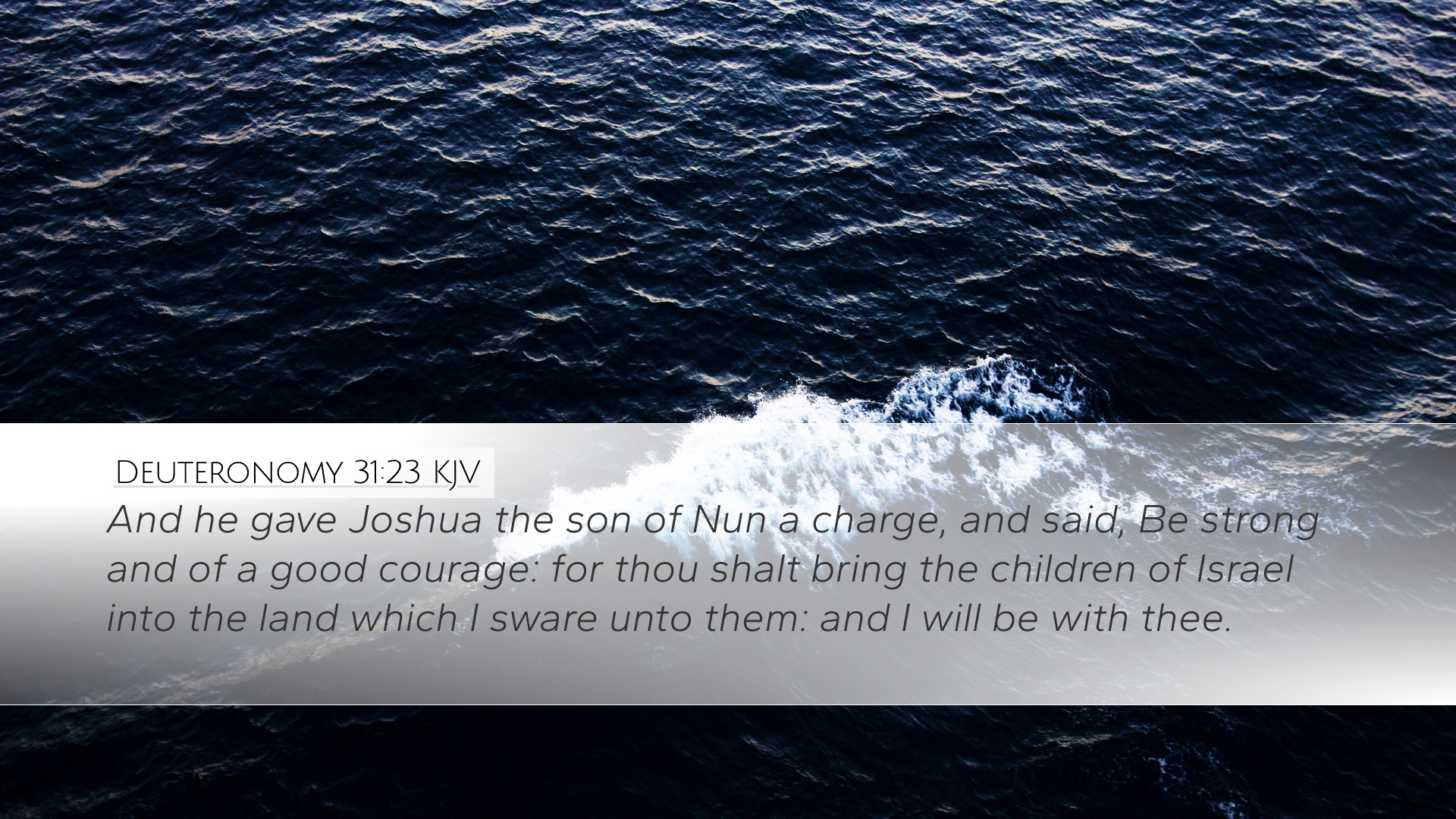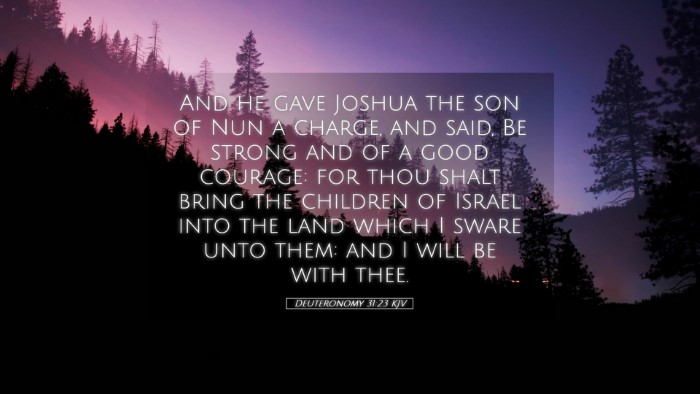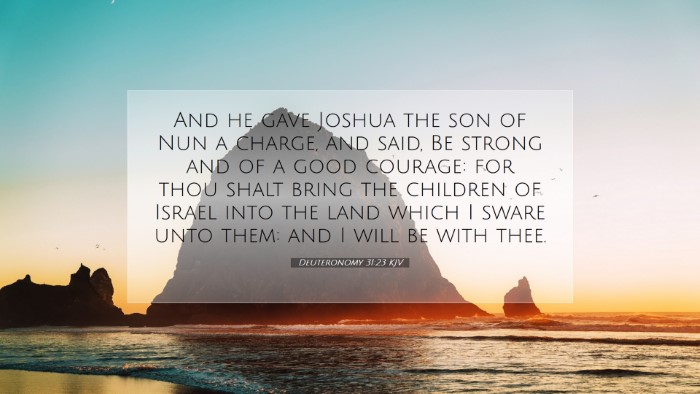Commentary on Deuteronomy 31:23
Verse Reference: Deuteronomy 31:23 (KJV): "And he gave Joshua the son of Nun a charge, and said, Be strong and of a good courage: for thou shalt bring the children of Israel into the land which I sware unto them: and I will be with thee."
Introduction
This verse is situated at a pivotal moment in the narrative of the Israelites. As Moses nears the end of his life, he passes on the mantle of leadership to Joshua. The context is rich with theological implications and provides incredible insights into God’s faithfulness and the nature of true leadership. The commentaries of Matthew Henry, Albert Barnes, and Adam Clarke each provide valuable perspectives that deepen understanding of this important transition.
Moses’ Charge to Joshua
Moses recognizes the importance of imparting strength and encouragement to Joshua, who is to lead the people into the Promised Land. Matthew Henry highlights the emotional weight of this moment, illustrating how Moses desires to bolster Joshua’s resolve amidst the daunting task ahead.
Henry expands on this by emphasizing that Moses, as a seasoned leader, understands what lies ahead. He knows the challenges of leadership and the fears that can accompany it. This acknowledgment underlines a fundamental aspect of biblical leadership: the necessity of strength and courage, traits that Joshua is called to embody as he assumes his new role.
Albert Barnes touches on the strength that comes from divine companionship, as indicated in “I will be with thee.” He emphasizes the assurance that God provides to His leaders. This assurance is rooted in the ongoing relationship between God and His people, serving as the foundation of Joshua’s courage and strength.
Theological Significance
The exhortation "Be strong and of a good courage" resonates throughout Scripture as a recurring divine command encountered frequently in moments of transition and challenge. This call to courage reflects not just personal strength but a reliance on God’s promise and faithfulness. Adam Clarke notes that the phrase signifies a spiritual strength and moral fortitude that is not solely of the flesh but rooted in the assurance of God’s promises.
Clarke elaborates that the charge suggests a dual emphasis on internal fortitude and outward bravery. As Joshua faces the complexities of leading a nation into battle and settling a new land, his strength must stem from a deep-seated faith in God’s provision.
Leadership Lessons
- Integrity and Courage: Henry points out the importance of personal integrity in leadership. Joshua needed to be a model of faith and strength, not just in speech but also in action.
- Mentorship: Barnes emphasizes the role of Moses as a mentor. The transfer of leadership between generations is fraught with challenges, yet it is essential for the continuation of God’s work among His people.
- Divine Assurance: Clarke elaborates on how Joshua’s courage is bolstered by the promise of God’s presence. Leaders must understand that they are never alone in their endeavors; instead, they are supported by a greater power.
Application for Today’s Church
This passage calls modern believers, particularly leaders, to reflect on their reliance on God amidst challenges. The same assurance given to Joshua applies today. Pastors and church leaders are reminded to seek God’s strength and guidance, especially when facing the daunting tasks of shepherding God’s people in uncertain times.
Furthermore, the call to courage extends beyond leadership; it reaches each believer as they pursue their spiritual journey. The continual promise of divine presence fosters a community of faith filled with boldness and courage, echoing the sentiments of both ancient and contemporary Christians.
Conclusion
Deuteronomy 31:23 encapsulates a moment of transition marked by divine assurance. The insights from Henry, Barnes, and Clarke enrich the understanding of the text, offering layers of meaning that resonate through centuries. As believers reflect upon this passage, the call to be strong and courageous serves as both a personal directive and a communal exhortation for leadership and faith in God’s unchanging promises.


